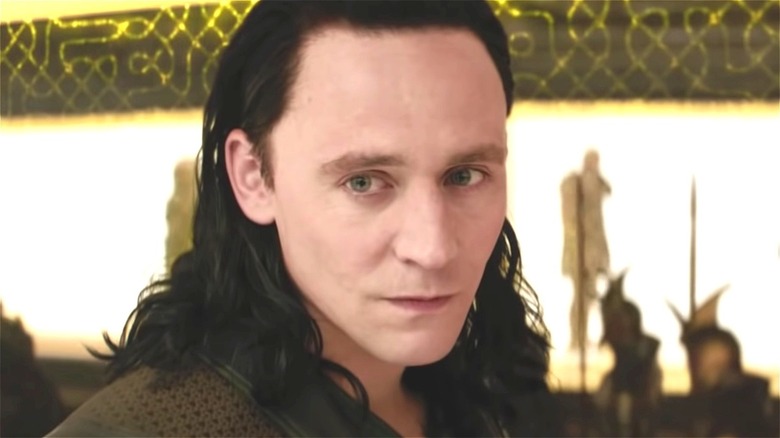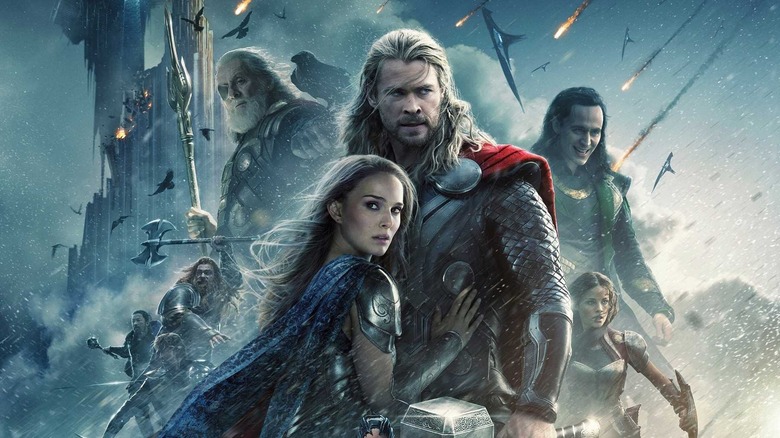Director Alan Taylor Confirms What We Always Suspected About Thor: The Dark World
Not all MCU films are created equal. For every "Iron Man" (which literally helps birth a cinematic movement), there must also be an "The Incredible Hulk" that finds itself largely forgotten. There are films that lose their initial directors, as happened with Edgar Wright and "Ant-Man," and there are movies that effectively get sidelined entirely like "Inhumans."
And then there is "Thor: The Dark World," the second of the "Thor" films and, as the title sort of accidentally suggests, the black sheep of the Thor catalog. The first film was tackled with gravitas by beloved British director Kenneth Branagh, and the third film took a wickedly funny turn thanks to unique stylings of Taika Waititi, but "Thor: The Dark World" is the perpetual middle sibling — and that's even before Christopher Eccleston starts talking about the misery of playing the film's villain Malekith.
However, for a film that is often derided by fans and critics alike, it remains a surprisingly important part of the MCU narrative overall. The story ends with Loki (Tom Hiddleston) secretly on the throne of Asgard after faking his own death, and it becomes surprisingly central to the events of "Avengers: Endgame," when Thor (Chris Hemsworth) must return to that time in order to track down the Reality Stone.
It turns out, "Thor: The Dark World" could have been even more than it was according to its director Alan Taylor.
The Taylor Cut of Thor 2 is very different
First, a quick refresher: In "Thor: The Dark World," as the nine realms align, Jane Foster (Natalie Portman) accidentally discovers (and becomes bonded to) the Aether (aka The Reality Stone), which puts her life in mortal peril as it awakens an ancient race called the Dark Elves who are bent on bringing darkness to all the cosmos. The story acts as a minor redemption tale for Loki, and features the tragic death of Loki and Thor's mother Frigga (Rene Russo).
Now that we all remember what "Thor: The Dark World" looked like when it hit theaters at the tail end of 2013, let's hear from director Alan Taylor about his original intentions. "The version I had started off with had more childlike wonder; there was this imagery of children, which started the whole thing," Taylor revealed in an interview with The Hollywood Reporter. "There was a slightly more magical quality. There was weird stuff going on back on Earth because of the convergence that allowed for some of these magical realism things. And there were major plot differences that were inverted in the cutting room and with additional photography. People [such as Loki] who had died were not dead, people who had broken up were back together again. I think I would like my version."
In short, it sounds like the plan was to keep Loki dead and Thor and Jane apart. Considering how things work out in the long run, at least Taylor can take some solace in his desires being met eventually. And, of course, we all still get to enjoy that one scene where Loki looks like Darlene Conner from "Roseanne" forever.

